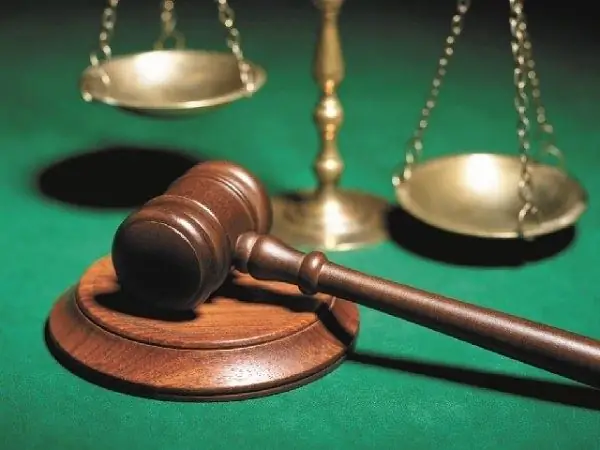- Author Antonio Harrison harrison@cultureoeuvre.com.
- Public 2023-12-16 07:44.
- Last modified 2025-01-22 21:44.
The idea of a state based on the rule of justice and law dates back to antiquity. Philosophers and thinkers of that era believed that the most correct form of organizing life in society is equality before the law of both ordinary people and representatives of government. These thoughts of Aristotle, Cicero, Plato and Socrates became the basis for the creation of the theory of the rule of law.

The ideas about the rule of law were constantly being refined, a significant contribution to their development was made by philosophers and scientists John Locke (1632-1704), Charles Montesquieu (1689-1755), later Immanuel Kant (1724-1804), Georg Hegel (1770-1831) and others. The first experience of creating a rule of law belongs to America and France, it was in these countries in 1789 that human rights and freedoms were legislatively enshrined. Modern ideas about the rule of law presuppose the presence of a number of characteristic features in it.
The priority of law over the state
The state can be considered legal if the power in it is limited by law and acts in the interests of the individual, in order to ensure the rights and freedoms of the citizen. The boundary of one person's rights is where his actions violate the rights of another. The primacy of law over the state also means that the people have the sovereign and inalienable right to participate in the exercise of state power.
Law above all else
Law is a form of expression of law. In a state governed by the rule of law, laws are based on legal principles, and do not sanction arbitrariness, violence and dictatorship. Only the highest legislative body has the right to change the law, and by-laws should not contradict the law.
Constitution and constitutional court
Human rights and freedoms in a state governed by the rule of law are the highest value. This provision must be enshrined in the country's constitution or some other document. At the same time, the Constitutional Court ensures compliance of laws with the Constitution and acts as a guarantor of the stability of society.
The principle of separation of powers
Division of state power into three independent branches - legislative, executive and judicial. This approach avoids concentrating the levers of government in the same hands, and avoiding despotism and authoritarianism guarantees the observance of individual rights. The branches of government, with relative independence from each other, establish mutual control.
Legal culture and stable rule of law
The duty of the authorities in a state governed by the rule of law is to ensure the reality of human rights and freedoms, to comply with the laws of a stable legal order. At the same time, the citizens of the country are also responsible to the state. They must respect existing laws, know their rights and be able to use them.






